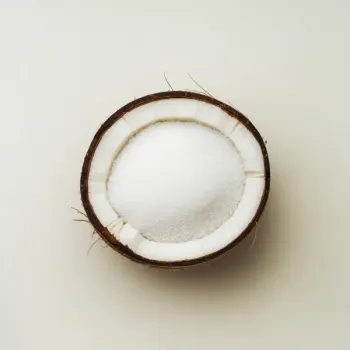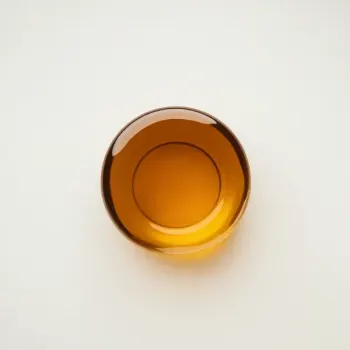Coconut sugar and maple syrup are natural sweeteners used in cooking and baking. Coconut sugar offers a low glycemic index and caramel notes, while maple syrup provides a woodsy sweetness and is rich in minerals and antioxidants. They can substitute each other with recipe adjustments.

Coconut sugar, derived from the sap of the coconut palm, offers a caramel-like flavor. It's praised for its low glycemic index and is often used as a more natural alternative to refined sugars.

Maple syrup, tapped from the maple tree, is a beloved liquid sweetener with a distinct, rich flavor. Its grades and colors range from light and delicate to dark and robust, each with its own culinary applications.
Coconut sugar and maple syrup differ in consistency, coconut sugar being granulated and maple syrup being liquid. The flavors also vary, with coconut sugar imparting a deep, caramel-like taste and maple syrup offering a unique woodsy sweetness. Their processing methods and nutrient profiles also set them apart.

Your ultimate Recipe Box, Meal Planner, and Cooking Class all in one
Best used in cookies, cakes, and crumbles, coconut sugar adds a rich flavor. Expect a darker color and subtle caramel notes. When baking with coconut sugar, it can replace regular sugar in a 1:1 ratio, but the moisture content may need adjustment. Ideal for moist baked goods like muffins, quick breads, and glazes, maple syrup brings a distinct sweetness. It can make your baked treats more tender. When substituting for sugar, use less maple syrup due to its liquid form and consider reducing other liquids.
Coconut sugar works well in hot drinks like coffee or tea, where it dissolves easily, offering a warm, caramel sweetness without overpowering the beverage. Maple syrup is a natural fit for cocktails, smoothies, and coffee drinks, providing a smooth, rich sweetness that blends seamlessly with liquids.
In sauces and dressings, coconut sugar adds body and a molasses-like flavor, making it suitable for savory applications like barbecue sauces or teriyaki. Maple syrup shines in glazes, marinades, and dressings, imparting a subtle complexity. Its liquid form integrates effortlessly, especially in vinaigrettes or maple-mustard sauces.
Coconut sugar and maple syrup can be substituted for each other in some recipes. However, due to differences in texture and moisture content, adjustments are necessary. When replacing coconut sugar with maple syrup, reduce other liquids; when using coconut sugar instead of syrup, add a bit of liquid to compensate.
Both coconut sugar and maple syrup contain minerals and antioxidants, but their nutritional value differs slightly.
| Nutrient | Maple Syrup ( per Tablespoon ) | Coconut Sugar ( per Tablespoon ) |
|---|---|---|
| Fat | 0g | 0g |
| Sodium | 2mg | 2mg |
| Calcium | 13mg | 0mg |
| Protein | 0g | 0g |
| Calories | 52 | 45 |
| Carbohydrates | 13.4g | 12g |
Both sweeteners have their benefits, but coconut sugar has a lower glycemic index, which may be better for blood sugar control. Maple syrup provides more minerals and antioxidants.
Yes, but you'll need to adjust the liquids in the recipe to account for the added moisture from the syrup.
Coconut sugar adds a caramel-like taste, while maple syrup provides a distinct, woodsy sweetness.
Yes, both are considered vegan-friendly sweeteners.
They can be used interchangeably, but the flavor profile and consistency of the sauce will change, so you may need to adjust other ingredients accordingly.